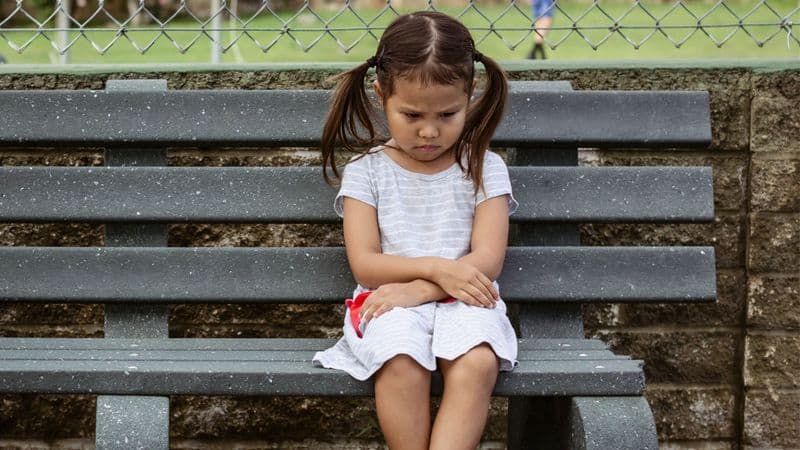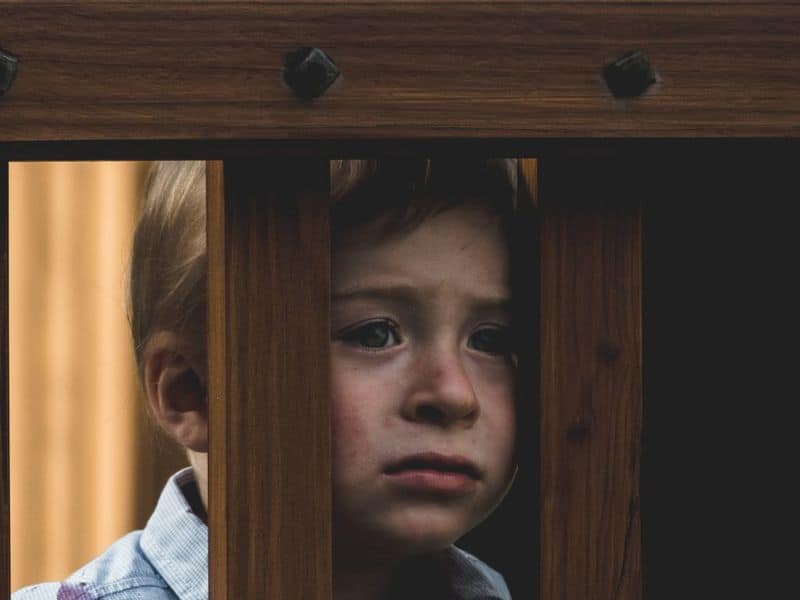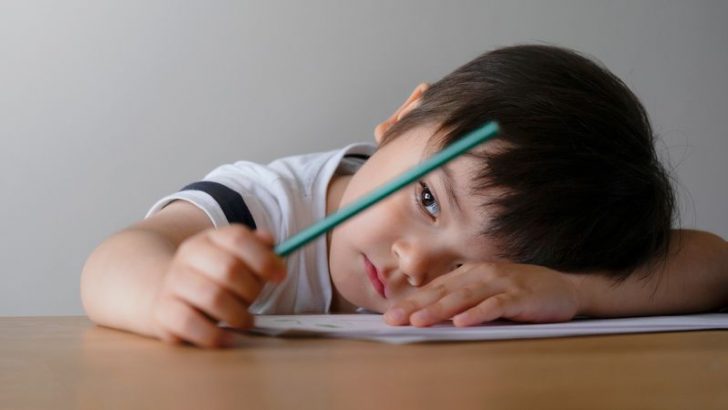Children, with their innocence and curiosity, deserve happiness and carefree days. However, some children consistently exhibit signs of unhappiness that should not be overlooked. Understanding these behaviors is crucial for parents, educators, and caregivers.
Chronically unhappy children may not always verbalize their feelings, but their actions can speak volumes. By recognizing these signs early, adults can provide the necessary support and guidance to help these children find joy and fulfillment.
Addressing these issues can prevent long-term emotional distress and foster healthier, happier individuals. Here, we delve into twelve common behaviors of chronically unhappy kids that warrant attention.
1. Withdrawal from peers

Chronically unhappy children often isolate themselves from peers, missing out on social interactions. This withdrawal can stem from feelings of inadequacy or fear of rejection. In group settings, they might linger on the outskirts, watching but not participating.
Over time, this isolation can lead to loneliness, impacting their social development. Encouraging them to join activities with support can gradually build their confidence. Parents and educators should gently guide these children to engage with peers, fostering a sense of belonging.
Positive reinforcement and creating a welcoming environment can significantly help them rejoin social circles.
2. Frequent mood swings

Mood swings are common in unhappy kids, where emotions fluctuate unpredictably. One moment they might be cheerful, and the next, deeply sullen without an apparent trigger.
These swings can confuse both the child and those around them, making it challenging to maintain stable relationships. It’s crucial to approach these situations with patience and empathy.
Engaging them in activities that promote emotional regulation, like art or sports, can be beneficial. Encouraging open conversations about their feelings can also help them manage emotions better.
3. Lack of interest in activities

Unhappy children often show a marked disinterest in activities they previously enjoyed. This lack of enthusiasm can be a sign of deeper emotional issues.
They might reluctantly participate in hobbies or avoid them altogether, missing out on joy and fulfillment these activities once brought. Encouraging them to explore new interests can reignite their passion.
Parents and caregivers should gently nudge them towards varied experiences, helping them discover what truly excites them. Small achievements in new areas can boost their confidence and happiness.
4. Excessive screen time

Chronically unhappy kids may turn to screens as an escape from reality. They might spend countless hours on devices, avoiding face-to-face interactions.
This excessive screen time can further isolate them, hindering social and emotional development. It’s essential to monitor and balance their screen usage with other activities.
Encouraging outdoor play and social interactions can gradually wean them off screens. Initiating family activities that include minimal screen use can also help develop healthier habits.
5. Difficulty sleeping

Unhappiness in children often affects sleep patterns, leading to insomnia or restless nights. This lack of sleep can exacerbate their mood and overall well-being.
Establishing a consistent bedtime routine can help improve their sleep quality. Reading, dimming lights, and setting a calming atmosphere can signal bedtime.
It’s crucial to address any underlying stress or anxiety contributing to their sleep issues. Professional guidance may be necessary if sleep problems persist.
6. Frequent complaints of boredom

Unhappy kids often express boredom, even when surrounded by engaging activities. This could indicate an underlying dissatisfaction or restlessness.
Encouraging them to explore new activities can help spark interest and reduce boredom. It’s essential to understand their preferences and introduce them to exciting, suitable options.
By creating a stimulating environment and offering varied experiences, caregivers can help these children find joy and satisfaction in different pursuits. Active participation and curiosity should be fostered.
7. Low self-esteem

Chronically unhappy children often struggle with low self-esteem, doubting their abilities and worth. This can manifest in reluctance to try new things or fear of failure.
Building self-esteem involves acknowledging their strengths and celebrating small achievements. Encouraging independence and resilience is crucial.
Adults can play a significant role by providing a supportive environment and positive reinforcement. Helping children set achievable goals can gradually boost their confidence.
8. Sensitivity to criticism

Unhappy kids may be overly sensitive to criticism, perceiving even gentle feedback as personal attacks. This hypersensitivity can hinder personal growth and learning.
Helping them understand the constructive nature of criticism is important. Framing feedback positively can mitigate their defensive reactions.
Encouraging self-reflection and focusing on personal growth rather than perfection can reduce sensitivity. Patience and reassurance from adults can foster resilience.
9. Chronic pessimism

Chronically unhappy children may exhibit a persistently pessimistic outlook, focusing on negatives even in positive situations. This mindset can affect their overall happiness and relationships.
Teaching them to identify and challenge negative thoughts is essential. Practices like gratitude journaling can shift focus towards positivity.
Encouraging them to see the good in situations and promoting optimism can gradually alter their perspective. Supportive guidance from adults is key.
10. Avoidance of responsibilities

Unhappy children often avoid responsibilities, procrastinating or neglecting tasks. This can stem from overwhelm or fear of failure.
Breaking tasks into manageable steps can make them less daunting. Praising effort rather than outcome encourages responsibility.
Providing structure and routine can also aid in managing responsibilities. Supporting children through challenges and celebrating achievements can motivate them to take ownership of tasks.
11. Overreliance on adults

Chronically unhappy kids might rely excessively on adults for comfort and decision-making. This dependence can hinder their independence and confidence.
Encouraging decision-making and problem-solving skills is crucial. Gradually giving them opportunities to make choices fosters independence.
Supportive guidance while allowing some autonomy can balance their need for security with growth. Building trust in their abilities can empower them.
12. Physical complaints without cause

Unhappiness can manifest as unexplained physical complaints like headaches or stomachaches in children. These symptoms often lack a medical cause.
Addressing underlying emotional issues can alleviate these complaints. Open conversations about feelings and stressors are vital.
Professional support may be needed if physical complaints persist. Understanding and addressing emotional well-being can lead to improvement in physical health.

Well, hello there!
My name is Jennifer. Besides being an orthodontist, I am a mother to 3 playful boys. In this motherhood journey, I can say I will never know everything. That’s why I always strive to read a lot, and that’s why I started writing about all the smithereens I came across so that you can have everything in one place! Enjoy and stay positive; you’ve got this!

